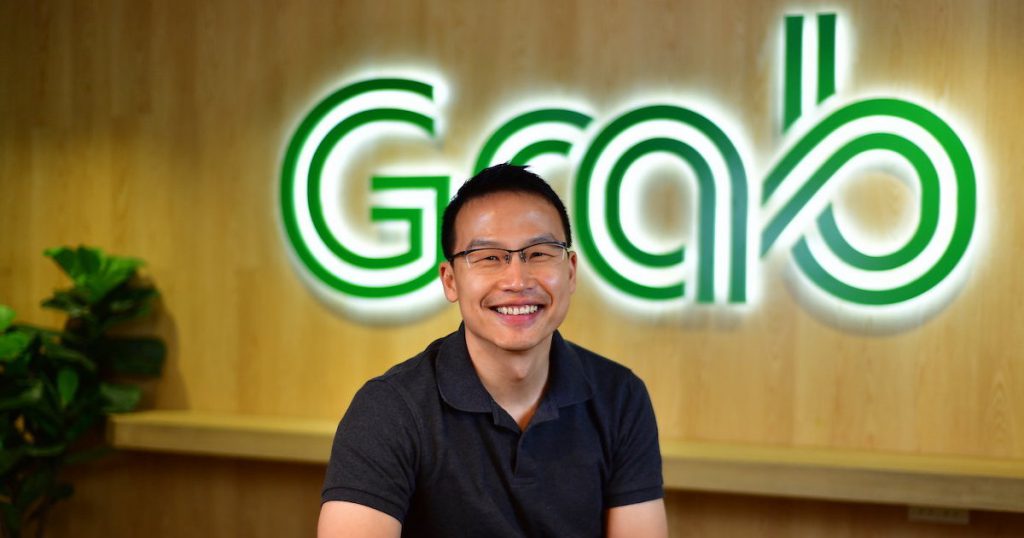Yesterday (Jan 4), Grab president Ming-Maa issued a public newsletter, with updates on the company’s progress for the past year.
Grab had started off 2020 with “tremendous enthusiasm”, but the Covid-19 pandemic threw them a curveball — they had to adapt and adjust their business accordingly.
Despite the challenges, Ming-Maa was happy to share that Grab’s group revenues have bounced back to “well over 100 per cent of pre-Covid levels.”
“Our core businesses have continued to grow well, with our total group net revenues growing approximately 70 per cent year-on-year in 2020 compared to 2019,” he said.
Grab Expects To Break Even In Food Delivery By End-2021
Additionally, Grab has successfully hit its growth and profitability targets.
It has reduced EBITDA spend by approximately 80 per cent over the last year and achieved segment breakeven for ride-hailing in all operating markets, including Indonesia, which is home to its biggest rival Gojek.
However, when city lockdowns happened, it greatly affected their most mature ride-hailing business.
“While we had already entered new business verticals like deliveries, we had to pivot quickly at scale to support our communities in their time of need,” said Ming-Maa.
Grab managed to onboard nearly 600,000 new merchants across Southeast Asia onto its online platform last year, more than doubling the number of its merchants.

By supporting small businesses, it nearly tripled food delivery net revenues year-on-year in the third quarter of 2020.
“We expect our food delivery business to achieve breakeven by the end of 2021, after having recorded positive EBITDA in several countries in Q2 2020.”
According to credit ratings agency Moody’s research note however, Grab’s EBITDA is unlikely to break even before 2023 as growth plans for its financial services business will “temper overall profitability” over the next two to three years.
Cash will be needed to ramp up new businesses as well as potential acquisitions to grow this segment, which offers cashless payment solutions, and products and services such as insurance, lending and wealth management, said the agency.
Most recently, Grab’s consortium with Singtel was awarded a digital full bank licence by the Monetary Authority of Singapore.
The new digital bank will likely commence operations starting 2022, which accelerates Grab Financial Group’s plans to serve more under-banked individuals and SMEs in Singapore.
Can We Expect To See A Grab-Gojek Merger Soon?

Last month, it was reported that there have been “progress” on Grab-Gojek merger talks.
A structure with substantial support sees Grab co-founder Anthony Tan becoming the CEO of the combined entity, while Gojek executives would run the business in Indonesia under the Gojek brand.
The ultimate goal is to become a listed company, but the two brands may run separately for an extended period of time. According to Nikkei Asia, some investors are keen to swiftly launch an IPO of the merged entity after closing a deal.
If the merger happens, it will likely create a monopoly in the local ride-hailing sector. The two firms may dictate prices that commuters pay when using their services and private-hire car drivers will be at their mercy too.
A merger would also likely see Grab take the lead in the integrated company because it is valued higher than Gojek and operates in more markets.

On Thursday (December 3), Grab told its employees in an internal note that “the firm is in a position to make acquisitions”.
“Our business momentum is good, and as with any market consolidation rumours, we are the ones in a position to acquire,” said Grab CEO Anthony Tan.
Regardless, the details are still far from finalised and both companies may still walk away from the deal.
Grab’s Vision For 2021
Moving forward, Grab will continue to focus on the more than 70 million small and medium-sized enterprises (SMEs) that account for 99 per cent of all businesses in SEA, which are key to the region’s economic recovery.
“In the new year, we want to keep focusing on this by creating a ripple effect that benefits not just the businesses that get on our platform, but the entire value chain that supports them,” said Ming-Maa.
He believes that the pandemic will force them to get innovative and find new and better ways to better serve customers.
“We will continue to take the lead to support them by giving more SMEs the tools and skills to thrive, so that no one gets left behind in a digital-first world,” he said.
He went on to cite a quote by Epictetus: “while we cannot choose our external circumstances, we can always choose how we respond to them.”
Featured Image Credit: Grab











